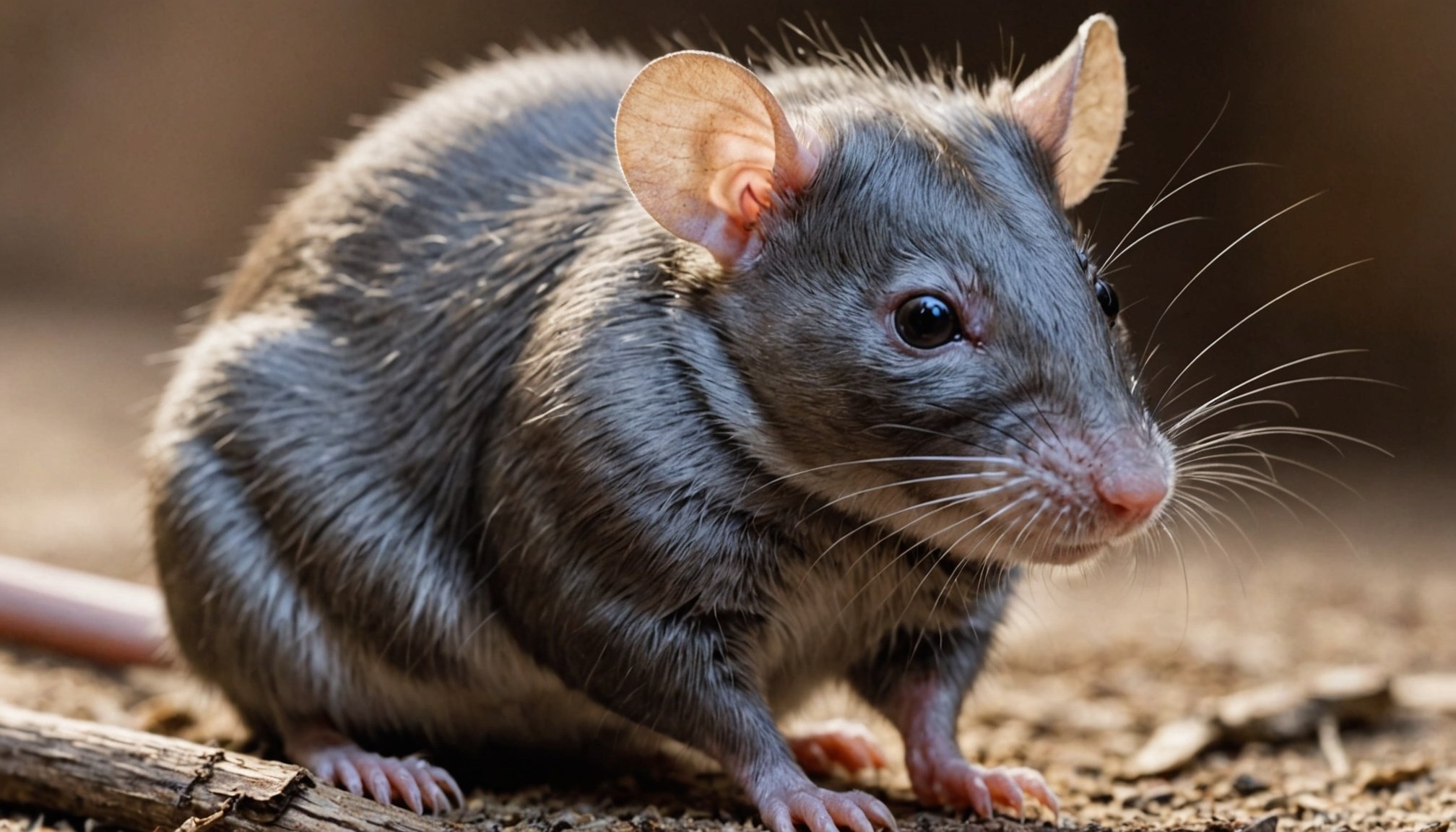Ultimate Handbook for Supporting Your Pet Rat’s Respiratory Health: Expert Tips for Ensuring Their Well-being
Understanding the Importance of Respiratory Health in Pet Rats
When it comes to the health of your pet rats, their respiratory system is one of the most critical areas to focus on. Rats are prone to various respiratory issues, and neglecting these can lead to serious health complications. Here’s why it’s crucial to prioritize their respiratory health:
- Genetic Predisposition: Many pet rats, especially those bred in laboratories or as pets, can have genetic predispositions to respiratory problems. For instance, they might be more susceptible to conditions like chronic respiratory disease or pneumonia[1].
- Environmental Factors: The environment in which your rats live plays a significant role in their respiratory health. Factors such as air quality, temperature, and humidity can all impact their breathing and overall well-being[2].
Creating a Healthy Environment for Your Pet Rats
The environment where your rats live is pivotal in maintaining their respiratory health. Here are some expert tips to ensure their cage and surrounding area are conducive to good health:
Also to discover : Delicious low-fat dog treats for a happy and healthy pup!
Avoiding Drafts and Extreme Temperatures
Drafts can be uncomfortable for rats and may exacerbate respiratory issues. Make sure to place their cage away from drafty areas, such as poorly insulated windows or doors. Also, avoid placing the cage directly under a vent or across from one. If necessary, adjust the vent to point away from the cage without closing it altogether[2].
Managing Light Exposure
Rats need a balanced light-dark cycle to maintain their circadian rhythm. Ensure they have 8 to 12 hours of darkness each day. This means finding a space in your home that is away from both artificial and natural light, including nightlights. Proper light management can help reduce stress and promote better sleep patterns[2].
Additional reading : Crucial strategies for administering medication to your beloved senior rabbit safely
Minimizing Noise Pollution
Noise can be a significant stressor for rats. Keep their cage in a quiet area, especially for newly acquired or nervous rats, until they become accustomed to the household sounds. If possible, place the cage in an area you frequent the most to encourage bonding and socialization. Avoid keeping the cage near loud appliances or speakers, and relocate the rats if you are having a party or using noisy devices[2].
Maintaining Cleanliness and Hygiene
Cleanliness is essential for preventing respiratory issues in pet rats. Here’s how you can keep their environment clean and hygienic:
Daily Cage Cleaning
Check the bedding daily to ensure it remains dry and free from urine or water spills. Use fleece or other absorbent materials for the cage floor and levels, and fill their beds with fleece scraps. This not only keeps the cage clean but also provides your rats with comfortable nesting material[2].
Safe Handling Practices
When handling your rats, it’s crucial to follow safe hygiene practices to prevent the transmission of diseases. Always wear a clean lab coat and gloves, wash your hands before and after handling the rats, and ensure any bites are properly treated and recorded. This helps protect both you and your pets from zoonoses and allergies[1].
Diet and Nutrition for Respiratory Health
A good diet is fundamental to maintaining the overall health of your pet rats, including their respiratory system. Here are some tips on what to feed and what to avoid:
Balanced Diet
Provide a balanced diet that includes high-quality commercial rat food as the main staple. Supplement this with fresh fruits, vegetables, and occasional treats. Avoid giving them foods high in sugar, fat, or salt, as these can lead to obesity and other health issues that can affect their respiratory system[2].
Fresh Water
Ensure your rats always have access to fresh, clean water. Change the water bottles or dishes daily to prevent bacterial growth. Dehydration can quickly lead to respiratory distress, so it’s vital to monitor their water intake and ensure they are drinking enough[1].
Recognizing and Managing Respiratory Issues
Early detection and proper management of respiratory issues are crucial for the health of your pet rats. Here’s how to recognize and manage common respiratory problems:
Signs of Respiratory Distress
Look out for signs such as chattering (a harsh, coughing-like sound), abnormal discharge from the eyes, nose, or ears, and changes in breathing patterns. If you notice any of these symptoms, it’s essential to consult with a vet immediately[1].
Common Respiratory Issues
- Chronic Respiratory Disease: This is a common condition in rats, characterized by symptoms like wheezing, coughing, and difficulty breathing.
- Pneumonia: This can be caused by bacterial or viral infections and requires immediate veterinary attention.
- Hantavirus: Although rare in pet rats, hantavirus can be transmitted through contact with infected rodent droppings, urine, or saliva. It is crucial to follow strict hygiene practices to prevent this[3][4][5].
Practical Tips for Managing Respiratory Health
Here are some practical tips to help you manage your pet rats’ respiratory health effectively:
Regular Veterinary Check-ups
Regular check-ups with a vet experienced in small animal care are essential. They can help detect any respiratory issues early and provide guidance on how to manage them.
Providing a Stress-Free Environment
Stress can exacerbate respiratory problems. Ensure your rats have a quiet, comfortable space with minimal stressors. Provide plenty of hiding places and toys to keep them occupied and happy.
Monitoring Health Daily
Daily monitoring of your rats’ health is crucial. Check for any signs of illness, such as changes in appetite, breathing patterns, or behavior. Keep a log of their health to track any changes over time.
Detailed Checklist for Maintaining Respiratory Health
Here is a detailed checklist to help you ensure your pet rats’ respiratory health:
-
Daily Tasks
-
Check and change bedding to keep it dry and clean.
-
Ensure fresh water is available at all times.
-
Monitor for signs of respiratory distress.
-
Clean food dishes and water bottles.
-
Weekly Tasks
-
Clean the cage thoroughly, including all accessories.
-
Disinfect any surfaces that come into contact with the rats.
-
Rotate toys and provide new hiding places.
-
Monthly Tasks
-
Schedule a veterinary check-up.
-
Review and update your rats’ diet plan if necessary.
Table: Comparing Common Respiratory Issues in Pet Rats
| Condition | Symptoms | Causes | Treatment |
|---|---|---|---|
| Chronic Respiratory Disease | Wheezing, coughing, difficulty breathing | Genetic predisposition, environmental factors | Medication, environmental changes |
| Pneumonia | Coughing, difficulty breathing, lethargy | Bacterial or viral infections | Antibiotics, supportive care |
| Hantavirus | Flu-like symptoms, respiratory distress, rapid breathing | Contact with infected rodent droppings, urine, or saliva | Supportive care, hospitalization in severe cases |
Quotes from Experts
- “Rats are sensitive to their environment, and poor air quality can significantly impact their respiratory health. It’s crucial to keep their cage away from drafts and ensure good ventilation,” says a veterinarian specializing in small animal care[2].
- “Early detection and proper management of respiratory issues are key to ensuring the long-term health of your pet rats. Regular veterinary check-ups and daily monitoring are essential,” advises a laboratory animal care specialist[1].
Supporting your pet rat’s respiratory health is a multifaceted task that involves creating a healthy environment, maintaining cleanliness and hygiene, providing a balanced diet, and recognizing and managing respiratory issues early. By following these expert tips and staying vigilant, you can ensure your pet rats live happy, healthy lives.
Remember, your small pets need your care and attention to thrive. Whether you have dogs, cats, rabbits, guinea pigs, or fancy rats, each requires unique care tailored to their specific needs. For your pet rats, focusing on their respiratory health is a critical aspect of their overall well-being. Make sure to provide them with the best possible care, and they will reward you with their affection and playful antics.





